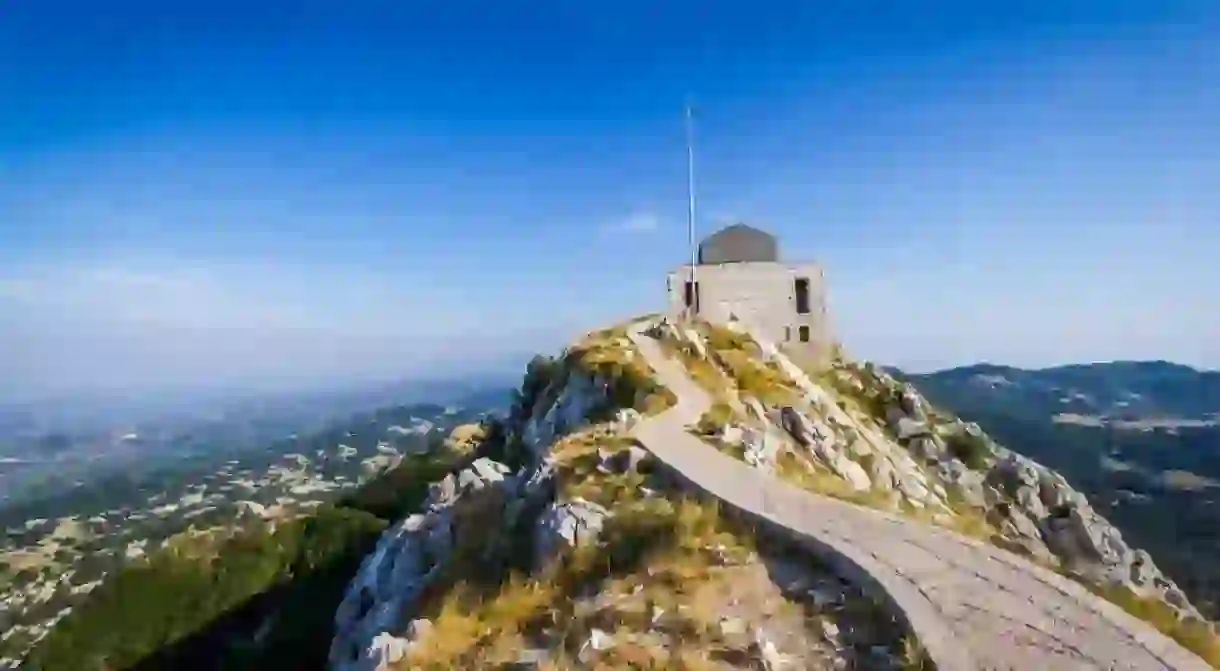A Guide To Lovćen National Park, Montenegro

Mount Lovćen holds a special place in the heart of all Montenegrins. This imposing black mountain gave the country its name, and is the final resting place of its greatest ruler. A visit to the national park is practically mandatory, and we’re here to make that just a little bit easier for you.
Lovćen National Park isn’t quite as massive as Durmitor or Lake Skadar, but it is arguably Montenegro’s best when it comes to a mix of nature, history, culture and the rest. Njegoš chose it as his final resting place after all, and if it is good enough for the famous poet prince then it is good enough for us. This is your guide to Lovćen National Park.
Planning a trip to Lovćen National Park? Book onto one of these top-rated tours to make the most out of your trip.
Whilst you’re in Montenegro, be sure to check out the best tours of the country for a memorable experience.
Getting to the park
Lovćen is located just a short drive from Kotor (20km) or Cetinje (7km), and heading there under your own steam is absolutely the best idea. The road isn’t exactly what you would call straight, but the drive is equal parts exciting and inspiring (not to mention challenging) and full of views that visitors would otherwise miss out on. Using public transport is far more challenging (read: impossible) however, as only private tour buses head up this way.
The birth of a nation, the death of a leader
Mount Lovćen isn’t black in the most literal way, but it was this 1,749m beast that gave Montenegro its moniker (the local name for the country is Crna Gora, or ‘Black Mountain’). For much of Montenegro’s history this was the entirety of the state, one of the few spots in the Balkans to hold out in the face of the relentless Ottoman onslaught. It was the capturing of the mountain by Habsburg forces that saw Montenegro put up the white flag in World War I.
One monument stands tall over all others in Montenegro, and it is found on Lovćen’s second highest peak. There is an irony in this, as no figure casts a shadow over Montenegrin history and culture as proud and true as the poet prince himself, Petar II Petrović-Njegoš. Most refer to him simply as Njegoš, and it was he who brought modernity and centralisation to Montenegro. Without Njegoš, we can only speculate as to what Montenegro would be like in the 21st century. His mausoleum is located on Jezerski vrh, and is an absolute must-see.
The village in which Njegoš was born is also found within the national park. Now called Njeguši, normal life in the village has long halted and been replaced by all things Njegoš, although don’t expect much in the way of facilities and amenities. No visit to Montenegro is complete without a sampling of njeguški pršut, dried ham prepared in a most unique way. Where better to taste it than at the source?

Get the blood pumping
It’ll come as no surprise to hear that Lovćen National Park is teeming with adventure activities, making it an enticing destination for adrenaline junkies all over. Quad biking and zip-lining are just two examples, although they may be a little extreme for most. The latter is particularly thrilling, but there is something about dangling over a massive mountain range that might not appeal to everyone. Hiking and cycling are also on offer for the more serene visitors, and the cooler temperatures up here make it a fantastic alternative to the mind-bending heat of Podgorica and the cities of the coast.

Where to lay your head
Considering how difficult it is to get to Lovćen National Park (relatively speaking), finding somewhere to lay your head overnight is recommended. The continuing development of tourism means increasing options are regularly popping up, but to describe accommodation options at Lovćen as ‘numerous’ would be an outright lie. Ivanov Konak is way out in front as the best hotel option, although most choose to pitch up a tent and sleep under the stars. Well, sleep under a thin layer of fabric under the stars, to be exact.














